|
Hummingbirds are increasingly choosing to overwinter in areas that get blizzards and deep cold. Hummingbirds can suffer and die when deep cold, blizzards, and ice storms set in. Keeping them alive requires warm feeder solution and often another heat source. Hummingbirds in Trouble: NEVER ignore a hummingbird that is clearly in trouble. A bird in trouble will be in a location that seems off, like tucked into a porch, hanging upside down, bill frozen to the feeder, dropping out of the air, falling into the snow, etc. They may also look bedraggled - birds in torpor are neither eating nor preening. Do not leave or ignore birds in trouble!!! Rescue is sometimes necessary. Text us for advice if you are not sure. Read on for how. Can Hummingbirds Survive Intense Weather? Background facts: Anna's Hummingbirds are 4-4.5 grams. On a normal day, hummingbirds must feed every 10-15 minutes; they can starve in hours. They use a physical state called torpor to conserve energy. However, they do not eat or preen in this state. Deep torpor shuts down the metabolism, lowers the body temp significantly, and suspends breathing for periods (up to 5 minutes). Birds that must go into torpor from lack of food, intense weather, or low body fat miss out on eating. This can turn into a deadly cycle in which the bird goes many hours without eating. They must eat everyday to avoid starvation. (Torpid birds are also at high risk for predation). Hummingbirds eat insects and nectar. Their nutrition comes from insects; sugar is pure energy to keep the bird able to forage for insects. Insects give them nutrition; sugar gives them energy. While they can survive on feeder solution alone for up to 10 days in typical temperatures, intense cold requires significantly more energy consumption. Finally, hummingbirds lack the amount of down that other birds have for insulation. Their fat also does not function as much as an insulating layer; fat is more of a gas-station, than a fat layer (like in mammals). This means that they have less ability to withstand super cold and super hot temperatures. (Thus why most migrate). Torpor also means they are not preening, which means the feathers' cleanliness and quality suffer. Poor feather condition results in less weatherproofing and ability to retain heat, leading to hypothermia. The more a bird has to fly around, fighting for a chance at the feeder, the colder the solution, the less healthy the bird, the lower their fat stores, the worse the weather, the poorer their feather condition - the less likely they can survive. Hummingbirds are tough, but there is a physical limit to how much intense weather one can tolerate before succumbing to hypothermia and starvation. Feeder Tips for Helping Hummingbirds Feeders: Icy feeder solution lowers the internal body temperature (thus icy drinks on a hot day). Keep those feeders WARM! The solution and the area ideally. 1) Keeper sugar solution warm. A hummingbird that drinks ice-cold sugar water all day will need to use more energy to warm up. Use a 4:1 solution, not 3:1, which is dehydrating and challenging for the kidneys. Do not use hot water from the faucet due to bacteria; warm it on the stove. 2) Use a home-made or commercial hummingbird feeder heater: a 25-watt bulb for 0-10 degrees; 15-watt for 10-20 degrees; 7.5-watt for 30 degrees. A 25-watt bulb will not keep the liquid warm all day at super cold temps. You will have to switch it out during the day, even with the heater. Holiday light bulbs can burn the birds if they sit on them and are too weak to keep solution thawed. 3) Consider putting up a heat lamp and a perch. Use high-quality bulbs, try to avoid the cheap, thin-glass red lamps. Heat emitters for reptiles are great (if white or black) as they do not have light, just heat. This means the birds sleep better. Hummingbird Heaters 4) What doesn't work: only switching feeders out - sugar water freezes again in a couple of hours; using hot water - again 0 degrees freezes even hot water; holiday lights, like those in picture below, barely do anything to keep a feeder warm. If placed as in picture above, the lights are not even toching the container. 6) What does work: heat lamps (no cheapos, they shatter in deep cold; there are better versions) and feeder heaters are the best options. (0 temp = 25-watt bulb; 20 temp = 15; don't bother with 7.5 watt). Lots of other ideas can work, but check the solution temp throughout the day. (Go to a birding FB page and search 'hummingbird feeder heater'). 7) Placing under the eaves and near the house will keep them warmer. A baffle or cover over the feeder is needed at least. 8) Pet bandaging (Vet wrap) on perches helps retain heat for your hummingbird! Important! Do not use hot water from a hot water tank. They carry bacteria, and hummers can get bacterial infections in their tongues. So, only stove top or electric kettle warmed cold tap (or better, filtered no chlorine or soft water). Evaluating Bird's Condition: There is always a reason for a bird failing. Perhaps s/he simply went too many days in deep torpor without eating. Starvation is a huge risk. Hypothermia could result from the bird being unable to maintain heat because they used up all their fat stores or their feathering is poor condition. Birds with health conditions succumb quicker. Younger birds succumb quicker. Releasing a bird in poor condition will likely result in that bird not making it. Always take a bird to a rescue if there is any question about their condition. Emergency Hummingbird Intervention: Very First: collect the bird or if stuck to the feeder, just bring the whole thing in. DO NOT FEED OR WATER THE BIRD!!! (You can drown them if they are unable to swallow) SECURE BIRD AND WARM; CALL A RESCUE! Stage one: Warmth is always FIRST! 1) Put bird into small box or tupperware on soft, smooth fleece.
Stage 2: Feeding 3) Place the bird in the small box, into a larger box.
4) Release:
Stage 3: Call a songbird specialist rescue center.
|
AboutNative Bird Care's is celebrating its 10th anniversary! Our main focus is song, shore, and waterbirds. We offer specialized care and facilities for these extraordinary birds.. Archives
July 2024
Categories
|
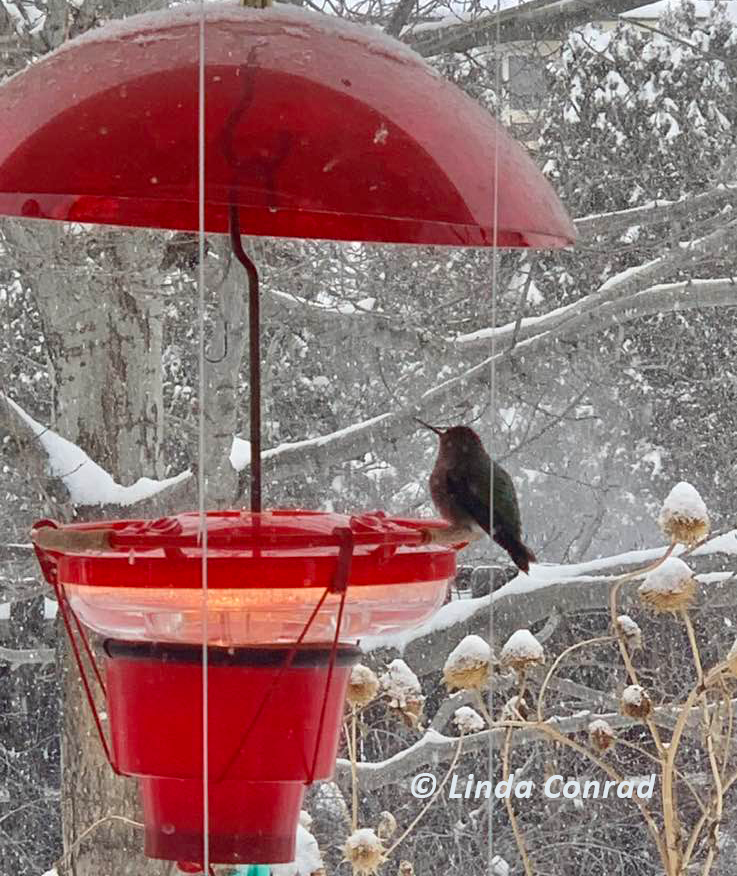
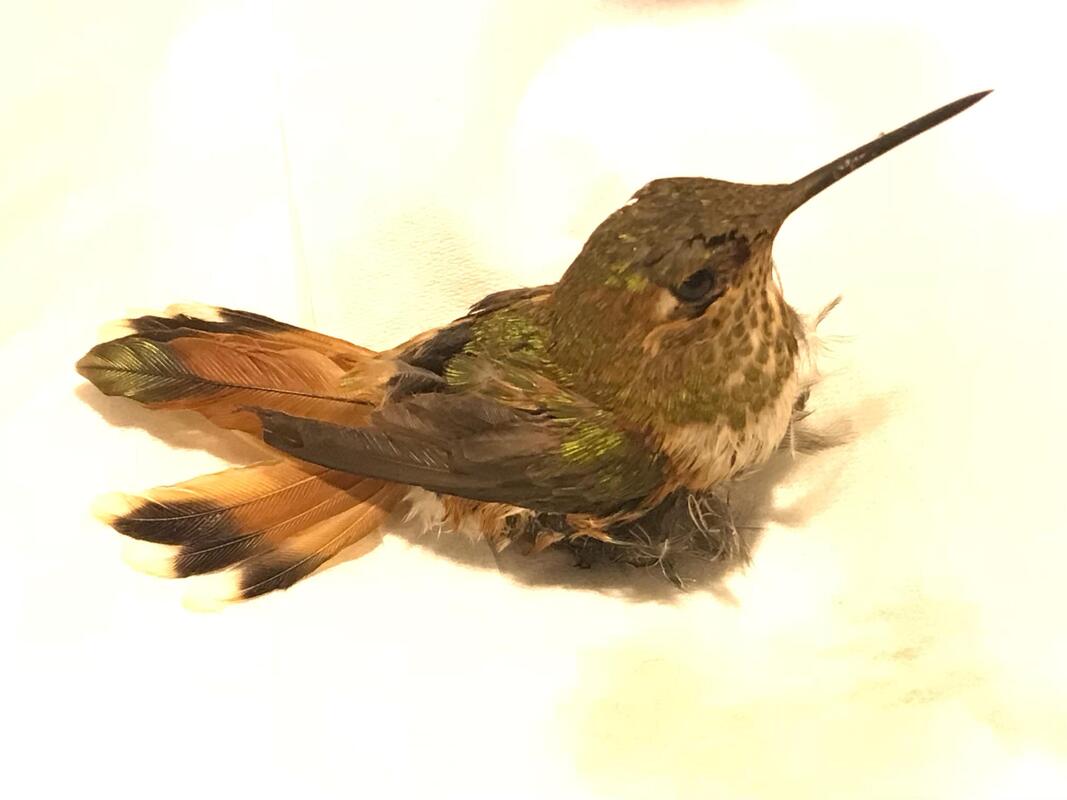
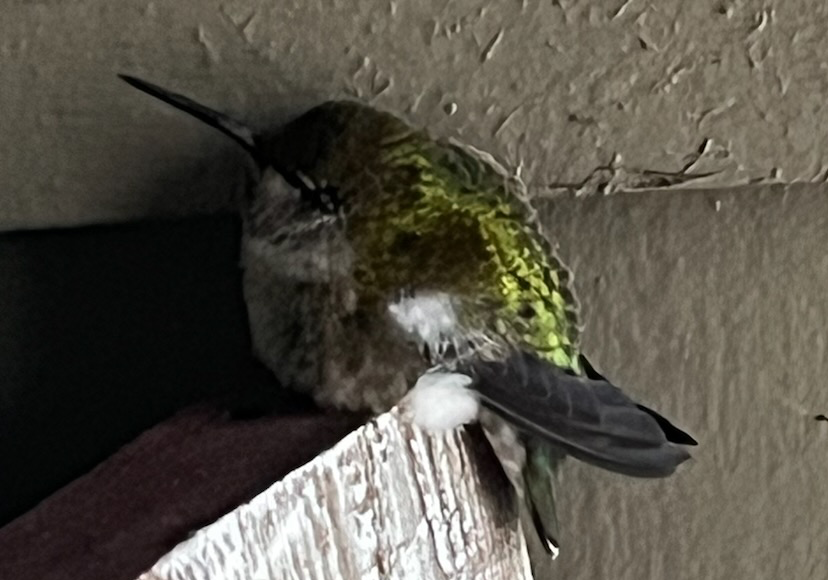
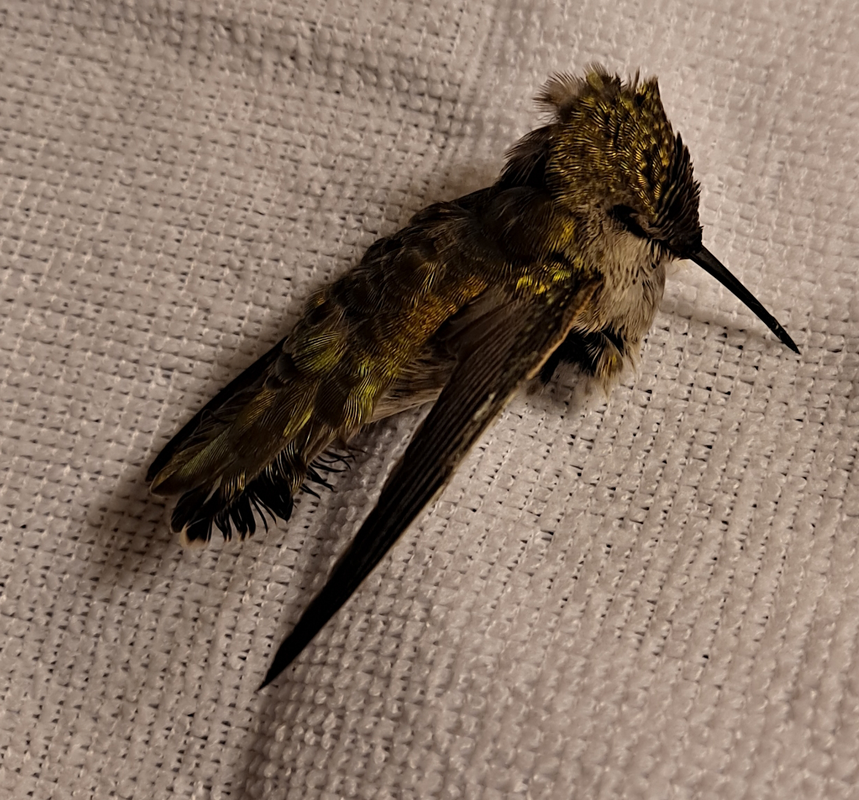
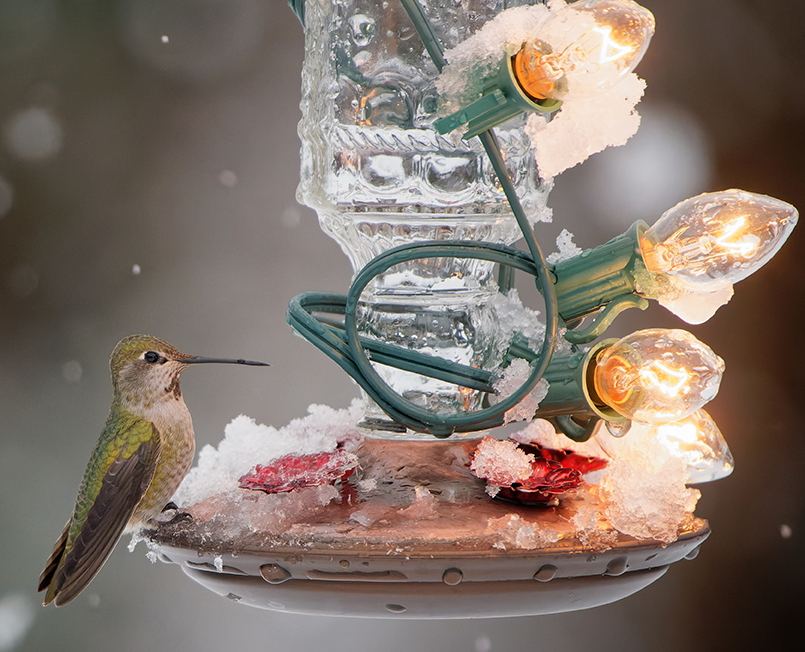
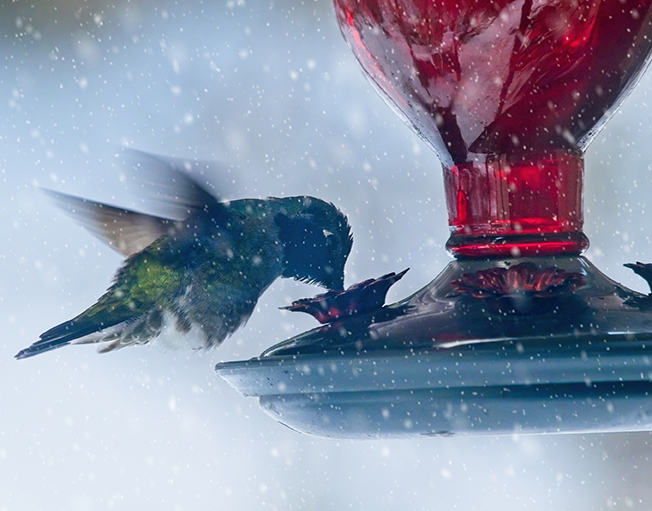
 RSS Feed
RSS Feed